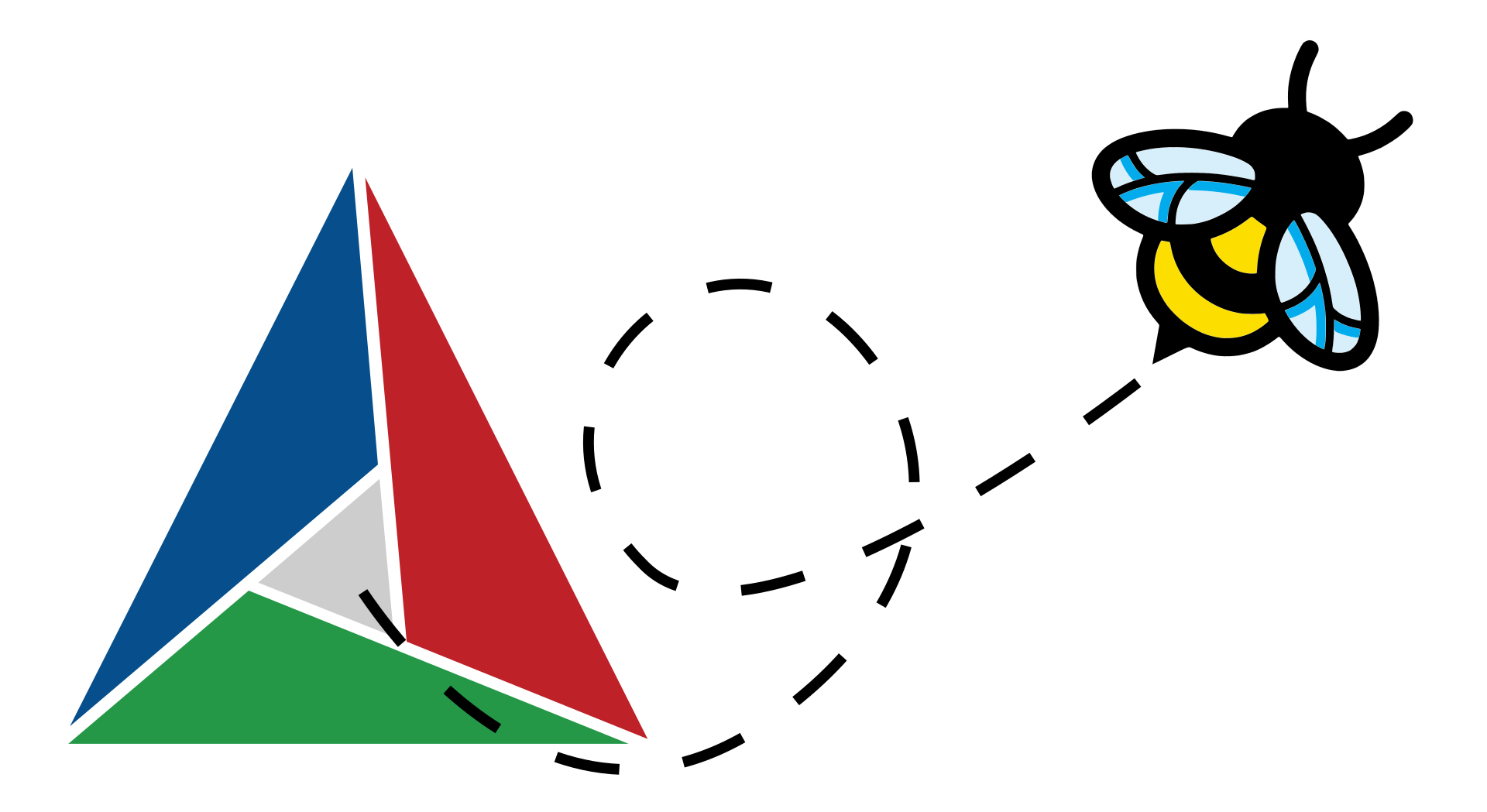eBPF programs the CMake way
by Mike Przybylski

Previously
An unusual library
It is highly desirable for eBPF code to look like just another library in a CMake project. This makes it easier for new developers to figure out what’s going on with the build, and enables advanced code navigation features in IDEs like CLion. However, there are enough differences between the way a native library is built and the way an eBPF object file needs to be built that CMake’s add_library() command needs to be used a bit differently.
Prerequisites
As noted in Creating a build environment for libbpf-based programs, Clang and bpftool are essential for producing eBPF object files. The rest of this article assumes they are installed on the build host or container.
Start with a dedicated subdirectory and CMakeLists.txt
To produce an eBPF object file from a CMake “library” target,
the CMAKE_C_FLAGS variable must be overridden and set to -target bpf -Werror -g -O2.
The CMAKE_C_COMPILER variable will also need to be overridden unless the outer project’s C
code is already being built with clang.
A dedicated subdirectory or subtree for eBPF source code takes advantage of
CMake variable scoping rules
to limit the effects of these overrides to just the locations where they are needed.
eBPF C Flags explained
-target bpf: Generate eBPF code. NOTE: eBPF follows the endianness of the processor on the target system.clang’sbpftarget follows the endianness of the build host’s processor. If you are cross-compiling, make sure your build system has logic to selectbpfeb(big endian), orbpfel, (little endian) based on the endianness of your target system.-Werror: The eBPF verifier in older Linux kernels will reject programs with backward jumps, (loops). (Even in newer kernels, the verifier requires a loop to have a finite trip count.) The solution for eBPF programs written in C is to add#pragma clang loop unroll(full)just above the beginning of the loop statement to have the compiler unroll those loops. (See Clang’s documentation for more information.) If the compiler fails to unroll a loop (usually because it can’t determine a finite trip count from the loop’s condition statement), it will generate a warning. For native code, such a warning is acceptable. For eBPF code, failure to unroll a loop is usually a fatal error. So-Werrorcauses the compiler to treat all warnings as errors.-g: Include source-level debug info in generated objects. Clang will add DWARF and BTF debugging data to its output files. DWARF is helpful for debugging eBPF verifier rejections, and BTF is required for libbpf to perform CO-RE relocations.-O2: Optimization level 2
File organization
My favorite way to organize an eBPF project is by program entry point.
For system call tracepoints, this means one .c and .h file per system call, i.e. read.bpf.c and read.bpf.h or
execve.c and execve.h.
Entry and exit handler programs should live in the same source file. Common helper functions should live in
separate header files.
CMake targets
Trying to build eBPF code as a “normal” library in CMake will fail at the linking step because eBPF object files don’t link like native code.
To build eBPF code with a CMake target, we have to use the
object library
signature of add_library()
There should be one CMake target per C file, and the C file and the target should have the same base name,
i.e. read.bpf.c is built by a CMake target called read.bpf:
add_library(read OBJECT read.bpf.c read.bpf.h)
This passes read.bpf.c to clang -c which compiles and assembles the file, but stops short of linking.
To do the equivalent of linking an eBPF project,
we need to write some explicit post-processing steps into our CMakeLists.txt.
We can reference the output(s) of an object library target with the following CMake generator expression:
$<TARGET_OBJECTS:target_name>
This allows us to pass them to add_custom_command():
add_custom_command(OUTPUT combined_bpf_lib.o
COMMAND bpftool gen object combined_bpf_lib.o $<TARGET_OBJECTS:target_a> $<TARGET_OBJECTS:target_b>
DEPENDS $<TARGET_OBJECTS:target_a> $<TARGET_OBJECTS:target_b>
VERBATIM)
“bpftool gen object …”
takes the .o files generated by target_a and target_b, combines them in a manner similar to the way
ld would statically link user-space object files, and de-duplicates their BTF data.
The output file is combined_bpf_lib.o.
We can also go a step further and package combined_bpf_lib.o for embedding in a C or C++ binary with:
add_custom_command(OUTPUT bpf-skeleton.h
COMMAND bpftool gen skeleton combined_bpf_lib.o > bpf-skeleton.h
DEPENDS combined_bpf_lib.o
VERBATIM)
Finally, we can create a named target that depends on these custom commands:
add_custom_target(bpf_skeleton DEPENDS bpf-skeleton.h)
A DRY (Don’t Repeat Yourself) CMakeLists.txt
Most eBPF projects are going to implement several eBPF programs. Each C file containing an eBPF program will require adding an…
add_library(... OBJECT ...)
…line to CMakeLists.txt and editing…
add_custom_command(OUTPUT combined_bpf_lib.o ...)
…to add a reference to its target objet files. This gets unwieldy with a large number of eBPF programs.
A cleaner solution would be to create and update a list of target names with corresponding source files…
list(APPEND BPF_OBJECT_TARGETS open close read write readv writev pwrite64 pwritev pwritev2)
…and iterate over that list to create object library targets and a list of output files for post-processing.
foreach (TARGET IN LISTS BPF_OBJECT_TARGETS)
add_library(${TARGET} OBJECT ${TARGET}.c ${TARGET}.h)
list(APPEND BPF_OBJECT_LIBS $<TARGET_OBJECTS:${TARGET}>)
endforeach ()
This greatly simplifies the custom command for the linking step:
add_custom_command(OUTPUT combined_bpf_lib.o
COMMAND bpftool gen object combined_bpf_lib.o ${BPF_OBJECT_LIBS}
DEPENDS ${BPF_OBJECT_LIBS}
VERBATIM)
Go forth and code
Once this scaffolding is set up around your eBPF code, it should be easy to add new eBPF programs to your project in a maintainable way.